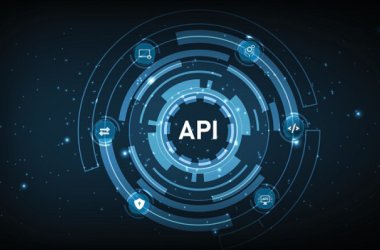 Home appliances, cars and computers could soon be talking to one another thanks to an open source framework that has the backing of consumer electronics manufacturers in a new industry alliance.
Home appliances, cars and computers could soon be talking to one another thanks to an open source framework that has the backing of consumer electronics manufacturers in a new industry alliance.
The AllSeen Alliance is supported by the Linux Foundation. Its members include Cisco, D-Link, Haier, LG Electronics, Qualcomm, Panasonic and Sharp.
The software framework, originally developed by Qualcomm as a project called AllJoyn, is intended to allow systems to discover, connect and interact with each other regardless of their manufacturer or the operating system they are using, the Linux Foundation said. The alliance members will contribute engineering resources and software to the framework, allowing software developers, manufacturers and service providers to make interoperable services and devices.
Qualcomm has contributed the AllJoyn code to the AllSeen Alliance, which will own the copyright, allowing the project to take on a broader scope, according to Linux Foundation executive director Jim Zemlin. The open source community can also contribute, he said.
The framework runs on software platforms such as Linux, Android, iOS, and Windows, including embedded variants. Developers can download the code and details of its APIs (application programming interfaces) from allseenalliance.org to start working with it, the Foundation said.
“Once the APIs that comprise the interoperability layer are opened up, there will be all kinds of opportunities to add services on top,” Zemlin said via email.
The framework could, for example, be used to let users easily connect their various music playing devices to nearby wireless speakers. Today this could be problematic because nearly all consumers mix and match audio output components from different manufacturers and store audio on a variety of local devices and in the cloud, Zemlin said. The new framework would make it possible to easily play music through compatible nearby speakers, he said.
“Engineers already are implementing this code in products being sold today. We look forward to more product announcements at CES,” he said.
The framework could also be used to let a system in the house detect that nobody is home and turn off the heat to save on the heating bill. “Even better, a system with this level of control could use a variety of states, enabling the house to enter its deepest sleep state when the occupants are out and gradually return to normal before they typically return,” according to Zemlin.
The same system could be used to let a house detect a car within a mile of home and then turn on the lights and heat as well as automatically open the garage door when the car is near, he said.
All of this could happen over existing technologies like Wi-Fi, Bluetooth and Ethernet as well as future radio and transport technologies, said Zemlin.
The AllSeen Alliance is the 11th Linux Foundation Collaborative Project. As more and more companies create products with this code base, the pool of developers working to extend and improve it will grow similar to other projects such as Linux or OpenStack, he added.





